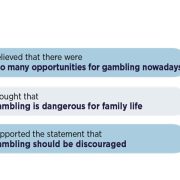2021 – THE NEED FOR CHANGE
The impact of Covid-19 restrictions and lockdowns have seen many people reconsider their work and lifestyle priorities during 2020. There are a few common themes such as social distancing and mask wearing, remembering the importance of spending time with family, and working from home. Many of these changes will become more or less permanent, but there are several, both positive and negative, that will impact on clubs, pubs and other hospitality businesses long term.
Here are a few of the COVID-19 related changes that will impact the hospitality industry:
- The comfort and security provided by “socially distanced space” (including gaming rooms).
Socially distanced seating spaces were mandated during lockdowns to either 1 person per 4m2, or 1 person per 2m2, depending on the level of community cases. People have become more comfortable with social distancing and the days of crammed restaurants and seating has ended.
Poker machine areas have become an area where space has become more important to many players. Post-lockdown data for June -August 2020 showed that many clubs and hotels were making the same amount of money from 30% less gaming machines active on their gaming floors (based on NSW Max data). While the number of active machines is increasing again in recent months, there has been no increase in gaming profits. This confirms a widely held belief that many venues have more machines than they need.
Even brief discussions with players will confirm that they prefer having extra space around them. Whether that is for privacy or social distancing/health comfort is debatable, but the fact remains the players feel better when no one is sitting right next to them. Clubs and hotels will need to consider this requirement for extra space and screening as they renovate rooms and return machines to the gaming room.
- Being more hygienic personally
This is one we can all be grateful for! COVID-19 has forced people generally in public shared spaces to become more aware of personal hygiene. Washing hands, covering your face when sneezing, the use of disinfectant and even wearing face masks have become second nature over the last 12 months. It is possible that the wearing of facemasks to protect others when people are sick, and as a way of protecting themselves, is a habit that may become permanent, at least when people are indoors in crowded spaces like bars, clubs and restaurants.
Ensuring personal hygiene products are available for use for customers can be a positive for service improvements in venues. The return of paper towels and nicer soaps in public amenities is an obvious signal to visitors of the venues strong service levels and the importance of cleanliness.
- Cleanliness is of extreme importance in public spaces.
Many of our regular customers, particularly those that are in the older age brackets, will remain fearful of going to places that contain large numbers of people. New hygiene standards will have to stay in place, no matter what the cost is to sustain them. After self-isolating and lockdowns, customers have a heightened sensitivity for deep cleaning practices in any area used by strangers and your club or hotel will be judged on their much higher standards and expectations.
Cleaning properties used to be undertaken in venues after the doors had closed for the night, with professional cleaning crews moving in to clean bathrooms, handrails, benchtops, and windows, mopping floors and vacuuming carpets. For some time to come the standard operating procedures for cleaning will need to be obvious, visible, and constant, and become part of the “show of cleaning” to overcome customers’ fears.
Your customers will not know what has been cleaned unless you make a big show of ensuring they see it actively being done.
- QR codes & other tech
Technology has played a part in surviving 2020, from Netflix to Zoom meetings and everything in between. It ensured the take up of technology crossed ALL age groups, with those who had fallen behind being forced to include themselves in the changes at some level. But for some of the technology that played a part in clubs and hotel trade throughout the COVID19 period more permanent usage is likely.
Tracking and tracing requirements and the need for businesses to eliminate touch-heavy items like physical menus have seen a universal use of QR codes across all age groups. Food ordering systems and online menus provide an advantage for venues to be more flexible with menu items that can change more frequently online than the costs of physical menus will allow. With a laser focus on costs, QR codes and online menus can actively promote seasonal or short-term lower cost menu items.
Temperature checking cameras, people counting software and facial recognition systems have all become standard equipment in clubs and hotels and will continue to be important in the future.
- Working from home
The percentage of employees working from home has been steadily increasing for years. But this year, thanks to the coronavirus, that rate of increase is going through the roof. A study by Condeco Software found that 75 percent of current teleworkers say they plan to work remotely for the rest of their career. (Most would switch jobs to keep working remotely.) That means the coronavirus will introduce millions of workers to the remote-work lifestyle, and they won’t want to go back to office work.
With the working from home trend, companies save money on office space and employees who can do it save on commuting time and costs. The Harvard Business Review reports that the number of employees working at home will probably increase, now that “most professionals found ways to be productive outside the office.”
Yet not everyone sees it that way. Many workers feel a lack of community and creativity when working from home so some clubs may find an advantage in setting up work hubs for home office workers. Even pop-up spaces particularly during school holidays would be a 2021 opportunity and if you added a coffee, drinks and food service, your club may become the new office.
With good coffee, quality café meals and lots of unused space, centrally located suburban clubs with good parking can fill this workspace gap for many.
- Working out at home & less structured exercise
While home fitness was popular prior to the pandemic, the closing of gyms a during lockdowns and periods of community transmission have driven sales of home workout programs and exercise equipment to an all-time high. Added to the prevalence of cases spreading through the common use of gym equipment 9 in 10 people said they will continue their home workouts, according to fitness company Beachbody in its The Future of Fitness survey.
Clubs, with a stronger eye for cleanliness than most gym operators, have an advantage, especially when combined with a business hub for people working from home who prefer to be out of the house. In the future, gym-going might become more of a hybrid activity, like employees who split their time between home and the office.
- Home cooking dents restaurant sales
There are several issues here:
- Ordering takeaway and shopping online and cooking at home means you don’t have to bother getting dressed up.
- many have used cooking as a boredom-buster during lockdowns, rediscovering their creativity and testing out fresh meal ideas.
- people have extra time to prepare meals (no work commute)
- Staying home means staying “COVID safe”
Hospitality venues will need to find ways to compete directly with these issues.
But on the positive side:
- Many people are missing the experience and excitement around Sunday brunch, a weeknight dinner at an undiscovered restaurant or strolling into your favourite neighbourhood spot for a quick bite.
- The idea of sitting down for a meal, prepared by chefs in a professional kitchen sounds like a dream.
Local, low key, high quality food will be the order of the day and many clubs and pubs fit that bill perfectly.
- Hybrid conferences
Clubs have traditionally made use of their size advantage, to cater for business conferences. With the crowd sizes and limitations enforced by government COVID restrictions opportunities for these events have become limited. The hybrid-conference approach offers the ability to gather a small group in person and to involve a larger, virtual audience. The result is that those who can access an event virtually feel they are part of something dynamic and those in person have a wider audience with whom they can connect. While virtual conferences may not offer the same benefits as in-person meetings, according to Global Workplace Analytics, executives have learnt that the savings outweigh the costs much of the time.
In order to take up this opportunity many clubs will need to update technology services provided for their conference spaces to accommodate “virtual” attendees and break up large spaces into smaller areas using flexible walls while maintaining social distancing quotas.
2021
While 2021 will still provide challenges for clubs & pubs and hospitality venues generally, there are also many opportunities provided by the wholesale lifestyle changes caused by the “great pandemic shakeup of 2020”.
People will prefer “local”, they will perceive that “clean” means the same thing as “safe”, technology has become more relevant to all age groups, they don’t want to commute for long periods to work anymore, and they have all changed the way they want to spend leisure time. Finding and filling the gaps here will be an interesting process.
By Justine Channing – Cream Gaming & Strategy Specialist
© The Drop 2021 – Material may not be reproduced or distributed without the authors consent












